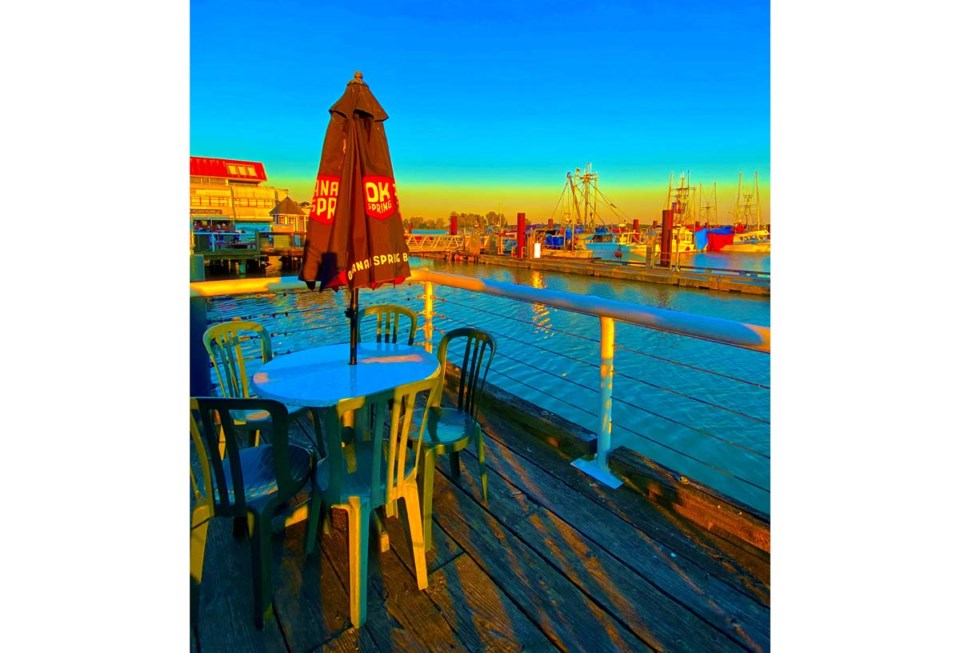Since when was the Railway Greenway packed on a Tuesday at 9 p.m.?
Clearly, I wasn’t the only one to notice the mercury dropping and desperate to unchain myself from the fan.
I should note “packed” is a relative term. But it was busier than I’ve ever seen it. The new bike park at Railway and Granville is clearly a draw. (Kudos to the city on that, by the way.) It looked like a ton of kids were having a blast.
But back to “the heat dome,” which is why so many of us were on the greenway. A ridge of high pressure was trapping hot air in, like a lid on a pot of boiling water.
Three days in a row, Lytton, (just this side of Kamloops) broke records for the highest temperatures in Canada — ever.
We even caught the attention of young Swedish climate activist Greta Thunberg who warned in a tweet that the recent heat wave was “just getting started.”
“Highest temperature ever recorded in the planet north of 50N latitude also shattered (44.4C from July 1941),” Thunberg wrote.
And that was in response to Sunday’s measly record of 46.7. Lytton went on to smash that the next day with 47.5 and the day after with a whopping 49.5.
Moreover, those aren’t the only disturbing numbers we’ve heard about.
Police in Vancouver, Burnaby and Surrey recorded a record high number of sudden deaths thought to be related to the heat. B.C.’s chief coroner, Lisa Lapointe, said her office would normally receive about 165 reports of death over a five-day period. However, from Friday through to 1 p.m. on Wednesday, at least 486 deaths were reported, and that number was expected to climb.
Strangely, Richmond RCMP didn’t record a particularly high number of sudden deaths. Perhaps that sea breeze is saving us, but we’re hardly immune to the crisis.
If there is one thing this past year should have taught us (with its unprecedented event, after unprecedented event) is we are not an island — despite being surrounded by water. Be it a virus or a climate crisis, we're in this together. Although that line is becoming cliche, we have to believe it. And not just believe it, but actually act on it because it's only cooperation and big picture thinking that's going to get us through what's still to come.
Scientists acknowledge we can’t say any specific event is a direct result of climate change, but they are absolutely clear that more of these extreme temperatures are on the way as a result of global warming.
So how do we wrap our minds around all this? What do we do, apart from panic or stick our heads in the sand and wait for the locusts.
Perhaps like tackling any other pressing and overwhelming task, we need to think personal and political at the same time. In other words, notice how our specific actions — decisions whether to drive or ride, pave or plant — have global consequences.
That said, we can’t put this all on you and me as individuals.
There are also powerful political and economic forces that can seriously limit our choices. As in, why exactly did our federal government buy a $12.6 billion pipeline? Why aren’t electric vehicles more affordable?
But at all levels, we need a sense of urgency, a genuine sense of this being a case of life or death.
The amazing thing is we actually have much of the technology needed to drastically slow the trend in global warming. What we don’t have is time. Take it from that prescient 18-year-old, “This is just getting started.”
It’s not lost on me that this is being published on Canada Day, a day that for many this year will not be one of nationalist pride but one of recognition and mourning.
When we contemplate residential schools, and colonization in general, we’d do well to contemplate the many ways arrogance and domination express themselves.
Now is the time to listen -- both to First Nations and the environment.



